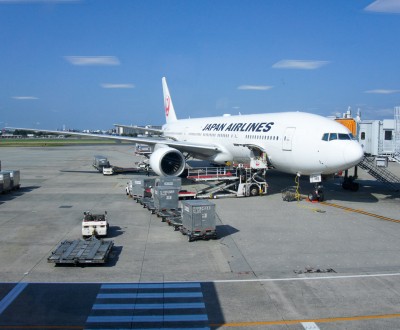The Growing Frustration among Foreign Tourists deprived of Japan in 2020
For many of us, everything began in March, with countries locking down one after another and Japan closing its borders by the end of the same month. Five months later, foreign tourists are still forbidden to enter Japan, and the suggested dates for reopening are still to be confirmed.
Over the past weeks, we learnt that good news could surprise us, but the situation of foreign nationals living in Japan, "stuck" in the country despite holding spouse or work visa or permanent residency (they can’t travel abroad as they would be banned from re-entry) is also a reminder that nothing should be taken for granted.
The gaijin traveler is persona non grata
Coronavirus 🦠 jeopardized what we took for granted and natural: comfortable, free travel and easy borders crossing. With these habits in mind, many of us were thus thinking of going to Japan "next year", until travel was suddenly banned.
After the dreadful spring outbreak, and despite the fact that many forgot elementary prudence after the lockdowns’ lifts (several countries and areas had to enforce wearing a face mask 😷 in public spaces), the need for holidays grew stronger, with official encouragements to take a summer break "locally". Schengen area even opened up to foreign nationals of 14, then 22 countries, including Japan from July to highlight its handling of the pandemic.
However, even if Kawabata’s country were ahead of its time regarding social distancing and civic manners, it still has a long way to go regarding administrative flexibility and implementing a culture of compromise that could help shifting to a post-Covid world. It’s a well-known problem: if there is no written instruction, the Japanese is quickly at loss on what to do, and as a consequence, does nothing, even if tourism represents 8% of its GDP.
The long and painful wait for a reopening date
Japan is a unique destination. Travelers used to enjoy holidays in the Maldives, or any tropical island will choose a closer destination, with similar features. But, for Japan’s aficionados, nothing beats an experience in the Land of the Rising Sun. Therefore, the situation is the source of many frustrations and revealed various aspects of foreign tourists: some will wait patiently, others will get angry and consider the travel ban an injustice.
Many of us are eagerly looking for information about the borders’ reopening date, for example in refreshing several times a day our article on Kanpai-Japan about "How and when to travel in Japan in 2020 and 2021" (see below), checking Twitter or subscribing to Facebook pages on the topic or to our newsletter to get notification as soon as the date is announced, or submitting questions on our Kotaete module to discuss the possibilities of travel in the next weeks.
It is the first time since the end of WWII that Japanese borders are closed. The fact that they would be for such a long time, without any hint about the end of the entry ban, was totally inconceivable at the beginning of the year. But the most frustrating part might be the uncertainty, as the closure is extended for 30 days every month. It is difficult for travelers, but most certainly deadly for many travel agencies specialized in the destination.
Between longing and hope to go to Japan
A gateway weekend in Europe is easily and quickly organized, but the archipelago is a far away country and traveling there is expensive. For many, it represents a once in a lifetime travel. The trip must be planned a long time beforehand; and savings were made over time to pay for it, it is carefully prepared, with the help of professionals or not, and a lot of time and money are invested in it.
In that regard, traveling in Japan is not a simple leisure destination, but akin to a dream come true when it finally happens. First-time Japan goers are cut from their dream, and seasoned Japan travelers are prevented from enjoying again the sounds and perfumes they have come to appreciate on a regular basis. Watching documentaries and cooking Japanese cuisine at home do have a limit!
Some questions are yet to find answers:
- Will tourists do a massive come-back in Japan as soon as the borders reopen, as it happened in 2011 after Fukushima Daiichi nuclear disaster?
- Will they still choose the overcrowded 3 seasonal peaks: sakura 🌸 at the beginning of spring, August and October, when the new social distancing habits prompt to travel during low seasons?
- In the same vein, will tourists change their behavior and mix the must-sees of Tokyo and Kyoto with more off the beaten tracks visits?
In the future, when reminding about Covid-19, we might think that the reappearance of autarkic Japan was only temporary, difficult but maybe necessary.
Let’s hope it will not last as long!






